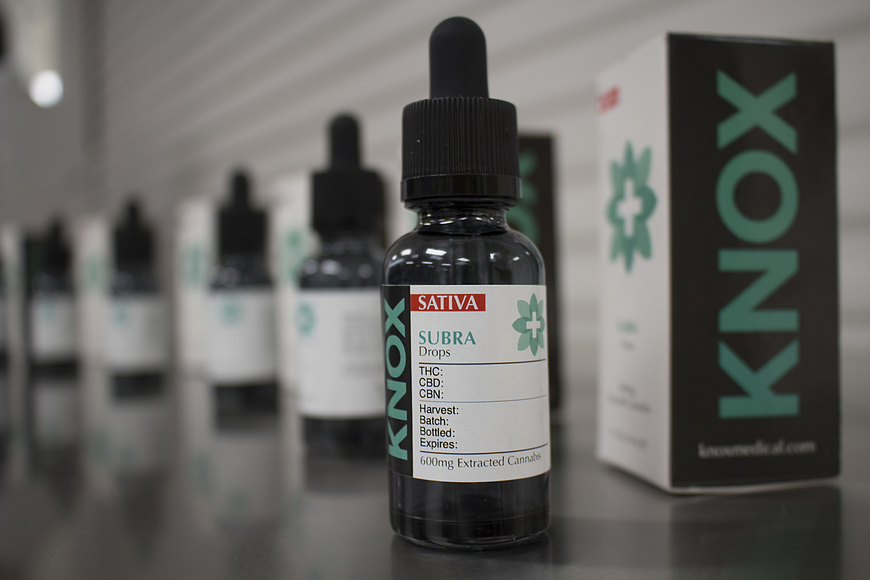- April 4, 2025
-
-
Loading

Loading

Approving medical marijuana dispensaries with almost no limits or banning them entirely leaves little wiggle room for city and county leaders around the state.
Yet that is the predicament elected officials face after a state bill dealing with the issue of medical marijuana dispensaries was signed into law June 23.
The legislation, which many believe has been written to tie the hands of city and county leaders, prohibits municipal officials from establishing limits on the number and location of the dispensaries if they approve them.
“The frustration that the state Legislature would take something that was passed and then put so many strings on it … so that, at the local level, we’d pass it without almost no restrictions or ban it was, frankly, nothing short of utterly shocking and disappointing,” said Orange County Mayor Teresa Jacobs.
Despite the less-than-ideal situation, Orange County unanimously approved an ordinance to allow dispensaries during the Nov. 14 Orange County Board of Commissioners meeting. This affects any part of West Orange that isn’t within municipalities of Winter Garden, Ocoee, Oakland and Windermere. This includes Horizon West.
In voting to allow dispensaries, Orange County joins counties Polk, Volusia, Hernando, Pasco, Pinellas and St. Lucie. Lake, Sumter and Indian River counties have voted to ban dispensaries, while Seminole, Osceola, Brevard, Citrus and Hardee counties still have moratoriums in place.
IMPACT ON TOURISM
However, concerns do remain for Jacobs and Orange County District 1 Commissioner Betsy VanderLey, who both discussed how dispensaries may affect the tourism industry and the local economy at large.
“I am also the representative that has most of the tourism corridor … and they’ve shared with me very serious concerns about these dispensaries being located in the tourism corridors and what that does to our family-friendly brand,” VanderLey said. “And I think the state really didn’t consider that when they pushed us to a position where it’s either all or nothing. … If we move forward and allow it, (the dispensaries) can locate there and impact our tourism industry significantly because of that stigma.”
In response to VanderLey’s comments, Jacobs stated she hoped the companies do not consider the tourism corridors as a good market because most of the tourists are not Orange County residents and thus ineligible to purchase medicinal cannabis in the county.
Jacobs also added it is possible to change the county’s land-use plan regarding where pharmacies are permitted, but it wouldn’t be easy.
COMBATING STEREOTYPES
Many Floridians, some of whom traveled from other counties, shared their positive experiences in using medical marijuana for their health conditions and attempted to dispel the common concerns expressed by opponents of marijuana dispensaries. All who spoke during the public comment forum spoke in favor of the ordinance, which becomes effective Jan. 1.
“After spending $500 total to get my card, I’m not going to go into a parking lot to sell this stuff to anybody,” said Pasco County resident Patricia Frietag. “People over 50 — we just want to not hurt all the time. I like to get up in the morning and be in a good mood. Since I started taking medicinal cannabis, I have done more outside my home than I (have) in the last 12 years.”
Alachua County resident Maria Hurley reminded county commissioners that 71.3% of voters statewide, and 73.1% countywide, approved to allow medicinal cannabis. Hurley also emphasized that Florida’s medical marijuana dispensaries do not fit the stereotypes.
“These dispensaries aren’t like your pot shops in Colorado,” Hurley said. “In Florida, they’re trying to give it a much more medical look. I’ve been to a couple of dispensaries now and when you walk in, it looks like your doctor’s office. There are no neon pot signs. There’s nobody in street clothes; everybody’s in uniform and it’s a really professional environment.”